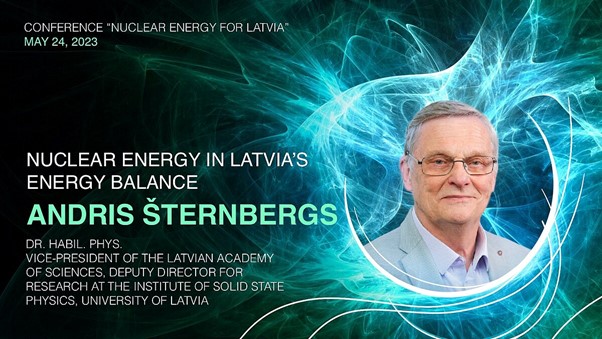On April 20 and 21, the "Deep Tech Atelier" conference and exhibition took place in Riga for the 5th time gathering 1443 participants from many countries. The largest delegations were from Finland, Sweden, Estonia, Germany, Lithuania, Israel and Hungary. During the two days event, entrepreneurs, investors and scientists discussed the prerequisites for implementing technologically intensive business ideas and formed new teams for further cooperation.
On the first day of the event, the ISSP UL was represented by the Director of the institute, Ph.D. Andris Anspoks, who participated in the panel discussion “How to start commercialization if you are not business people?” on the Deep Tech Stage. This panel talked about the practicalities of starting a commercialization journey and explored ways of getting support from institutions and the business community. Among the participants of this panel were Ella Kalniņa, the commercialization reactor fund partner and jury member at the European Innovation Council (EIC) Accelerator, Simona Rataj, the head of the department for strategic marketing of IPR, University of Ljubljana, Dóra Marosvölgyi, founder and CEO at DARE Innovations, and Kristaps Jaudzems, group leader at the Latvian Institute of Organic Synthesis, Professor at the University of Latvia.
On the event’s second day, the researcher from the ISSP UL’s Laboratory of Materials for Energy Harvesting and Storage, Pēteris Lesničenoks, gave a presentation on clean hydrogen, highlighting the latest issues of hydrogen in the Baltics and provided an insight into what Baltics could do. This talk also took place on the Deep Tech Stage.
Together with PhotonicsFinland and PhotonicSweden, the Nordic Optics and Photonics (NOP) Conference was held as part of the Deep Tech Atelier. The conference focused on quantum technologies, optical fiber and sensors. Oral and poster presentations were given on the following topics: Advanced Materials, Optics & Spectroscopy, Photonics in Manufacturing, Laser Technology,
On the second day of the NOP conference, Andris Anspoks was a moderator of the Nordic Photonics and Electronics forum.
On the same day, the leading researcher from the ISSP UL’s Laboratory of Organic Materials Ph.D. Arturs Bundulis participated in the NOP panel discussion, “Exploring the Future of Photonic Technology: Innovation, Application, and Nanomaterials”. This panel discussion featured three distinguished photonics experts who explored how advances in photonics research drive progress in fields ranging from electronics to quantum technologies. The panellists shared their findings and insights, both in scientific terms and industrial applications. Among the participants of this discussion were Oskars Teikmanis, the research assistant at the Institute of Electronics and Computer Science (Latvia), Ph.D. Julien Zichi, technical sales engineer at Hamamatsu Photonics and Ph.D. Hannah Joyce, professor in low dimensional electronics at the University of Cambridge.
Artūrs Bundulis also gave a presentation, “Polymer Photonic Platform: application centered photonic platform”. This platform is a new initiative with the goal of developing a workflow for the fabrication of basic photonic components/elements that can be further used for both testing new photonic devices and optical materials as well as commercial device fabrication.
Along with exciting presentations by international speakers, the event featured a large EXPO area where entrepreneurs and scientific institutions provided information and presented their products. The ISSP UL was represented by the Materize unit established within the scope of the CAMART2 project to promote the export of scientific services in innovative materials-based technologies and cooperation with industry.
Before the NOP conference, its participants were invited to the ISSP UL to see the laboratories and state-of-the-art equipment and talk with the scientists about their latest research in photonics.
"Deep Tech Atelier" gathers a large number of participants from many countries of the world. This is the most ambitious event in the Baltics, dedicated to developing the science-intensive ecosystem and industry.



